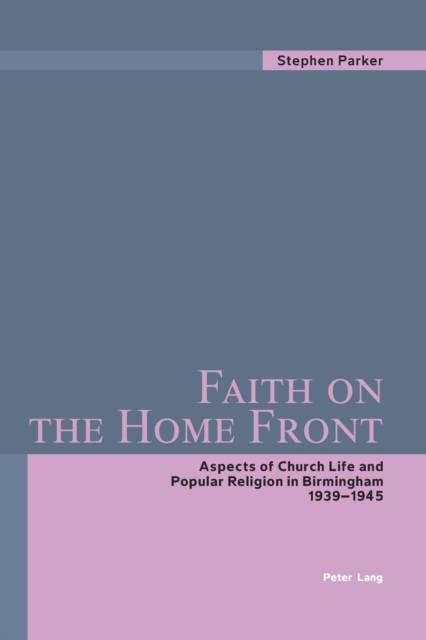
- Afhalen na 1 uur in een winkel met voorraad
- Gratis thuislevering in België vanaf € 30
- Ruim aanbod met 7 miljoen producten
- Afhalen na 1 uur in een winkel met voorraad
- Gratis thuislevering in België vanaf € 30
- Ruim aanbod met 7 miljoen producten
Zoeken
Faith on the Home Front
Aspects of Church Life and Popular Religion in Birmingham- 1939-1945
Stephen Parker
Paperback | Engels
€ 81,45
+ 162 punten
Omschrijving
The nature of religion on the domestic front in Britain during the Second World War has, hitherto, been relatively unexplored. This study focuses on Birmingham and describes wartime popular religion, primarily as recounted in oral testimony. The difference the War made to people's faith, and the consolation wrought by prayer and a religious outlook are explored, as are the religious language and concepts utilised by the wartime popular media of cinema and wireless. Clerical rhetoric about the War and concerns to spiritualise the war effort are dealt with by an analysis of locally published sources, especially parish magazines and other religious ephemera, which set the War on the spiritual as much as the military plane. A final section of the study is devoted to measuring the extent of the influence of the churches in the creation of a vision for post-war Britain and Birmingham.
Specificaties
Betrokkenen
- Auteur(s):
- Uitgeverij:
Inhoud
- Aantal bladzijden:
- 250
- Taal:
- Engels
Eigenschappen
- Productcode (EAN):
- 9783039102525
- Verschijningsdatum:
- 29/05/2006
- Uitvoering:
- Paperback
- Formaat:
- Trade paperback (VS)
- Afmetingen:
- 152 mm x 229 mm
- Gewicht:
- 340 g

Alleen bij Standaard Boekhandel
+ 162 punten op je klantenkaart van Standaard Boekhandel
Beoordelingen
We publiceren alleen reviews die voldoen aan de voorwaarden voor reviews. Bekijk onze voorwaarden voor reviews.











